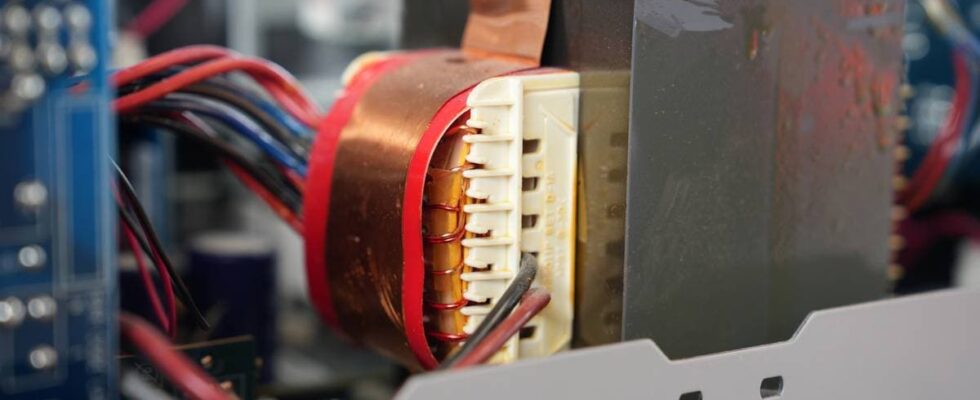The case in summary • Indium, a rare metal used in smartphones, is being depleted.• “Urban mining” is a solution that involves extracting resources from already mined materials.• It is estimated that there are around 10 million unused mobile phones in Norway, which contain valuable metals that can be reused.• Globally, less than 1 percent of the rare earth metals are recycled. The summary is made by an AI service from OpenAi. The content is quality assured by news’s journalists before publication. If you’re reading this on a smartphone and scrolling on the screen, it’s thanks to a thin layer of the rare metal indium. The metal may become impossible to obtain, because humanity has soon taken out what is found of indium on the globe. Thus, a product is missing to make smart phones, flat screens and electric cars. At the same time, there are many tons of unused metals lying around. The key to the metal shortage is what the recycling industry calls “Urban mining”. It is about using resources that have already been extracted. Several million mobile phones Old mobile phones have the greatest immediate potential in urban mining, because 95 per cent of a mobile phone can be reused: The battery contains cobalt, graphite and lithium. Gold, copper, silver, tungsten, tantalum and tin are used in the circuit board. The processor is made of silicon to which phosphorus, antimony, arsenic, boron, indium and gallium have been added. The screen has a thin layer of tin, potassium and indium. Sound and vibration would not be possible without neodymium, praseodymium and dysprosium shows an overview that RENAS has made. According to the GSMA, 5 billion phones in the world are not in use. A few years ago, the cost of recycling phones and tablets was around ten kroner per unit. Now it is somewhere between three and five cents. Almost anything of value can be recycled from such devices. Photo: John Inge Johansen / news Only one in ten mobile phones end up for recycling, and globally less than 1 percent of the rare earth metals are recycled. An estimate shows that there are around 10 million mobile phones lying around in Norway alone. – We in Western Norway are a third of Norway, so there will quickly be 3 million mobile phones lying around in cupboards and drawers, which should have been here. Then we get to take out the values that lie in it, says Christian Roti at the waste disposal company BIR AS in Bergen. Perhaps you have gold, ruthenium, indium and bismuth in your own home? How many mobile phones do you have at home? Only one, which I need as a spare phone. One too many – and I should probably hand it in. More than one phone in my drawers, unfortunately. Show result Want to map The values that lie in reuse and recycling are staggeringly large: NOK 120 billion worldwide. Each year. Recently, Rødt in Bergen proposed that the municipality should participate in a trial project with urban mining. Mailiss Solheim-Åkerblom Rødt in Bergen: – I think people may not realize how little metals and minerals there are left in the world, unfortunately, says Solheim-Åkerblom. Photo: John Inge Johansen / news – More than half of the non-renewable resources such as minerals and metals have already been extracted and can be found around our homes and in old buildings, says Mailiss Solheim-Åkerblom in Rødt. Rødt wants a survey of unused metals in Bergen, and the city council will decide on the proposal at its next meeting in the autumn. – I don’t think I’m the only one who has an old mobile phone lying around that hasn’t been sent for recycling, but there’s also a lot in old copper pipes that aren’t in use, says Solheim-Åkerblom. WATCH THE CASE: Can you imagine mining in the middle of a city? Yes, in a way this is the consequence of a wish from the party Red in Bergen, but not a traditional mining operation. The values are found in most homes and old buildings, now it’s about utilizing resources that have already been dug up. Necessary recycling Christian Roti at the waste disposal company BIR AS in Bergen thinks the concept of urban mining sounds like a necessity. Christian Roti is recycling manager at BIR AS. Photo: John Inge Johansen / news – If we are to have a sustainable solution, and that we want this type of product in the future, then we are completely dependent on retrieving this from discarded items. We need to get it back into circulation rather than going into a traditional mine and extracting it. If consumers wish to hand in electrical waste, there is an overview of return points at sortere.no. An old mobile can have great value. Photo: John Inge Johansen / John Inge Johansen / news Several companies also have deposit schemes, such as Apple, Telia, OneCall and Elkjøp. In many places, the values are also secured with a sealed “safe box”, which only Norsirk can open. – This is very important to avoid private photos or data ending up astray, and there is no reason to be anxious about the mobile phone or tablet falling into the wrong hands, says Roti. Theft of electrical waste has been a problem. With a “safe box” at the recycling station, the safety of devices with memory chips is also taken care of. Photo: John Inge Johansen / news Published 13.07.2024, at 16.32 Updated 13.07.2024, at 17.33
ttn-69
You probably have gold, ruthenium, indium and bismuth in your own home – this can be recovered from mobile phones – news Vestland

